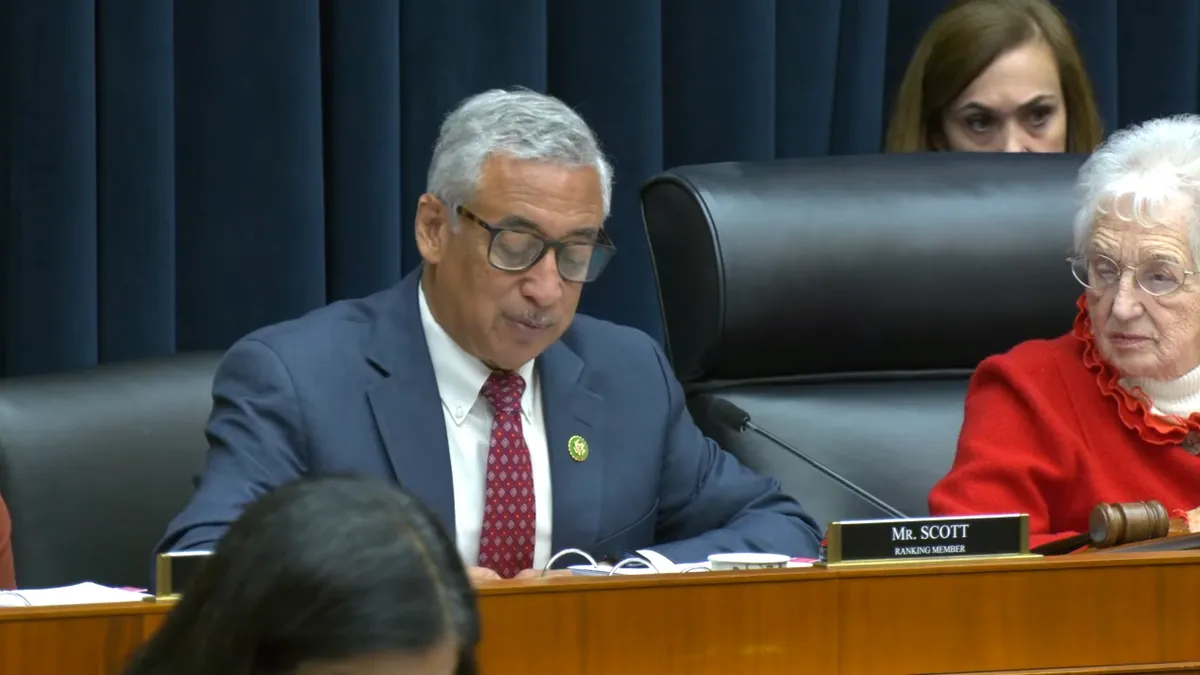Dive Brief:
- The House Committee on Education and the Workforce advanced a highly watched bill Tuesday that would allow students to use federal Pell Grants on short-term programs.
- The legislative proposal, which passed 37-8, would create Workforce Pell Grants that students could apply to programs as short as eight weeks, starting in the 2025-26 academic year. However, some Democrats fear that for-profit programs would try to set up shoddy credentials that would skirt consumer protections in the bill.
- State and federal regulators, as well as accreditors, would determine which programs would qualify for the new grant. Democrats are also objecting to a funding provision that would block private colleges with large endowments from offering federal student loans.
Dive Insight:
Short-term Pell has emerged as a rare idea with bipartisan support in recent years, though Democrats and Republicans have developed divergent legislative proposals around it.
The new bill, however, is the product of negotiations between Rep. Virginia Foxx, a North Carolina Republican who chairs the House education committee, and Rep. Bobby Scott, a Virginia Democrat and the committee’s ranking member. Foxx and Scott both sponsor the legislation.
Higher ed pundits consider it to be one of lawmakers’ best shots to rework the Pell system in a heavily divided Congress.
Foxx and Scott lawmakers talked up the bill during a Tuesday session of the committee. Scott reinforced that it contained guardrails to prevent students from getting trapped paying for a second-rate credential.
For one, the U.S. Department of Education would need to confirm programs maintain completion rates and job placement rates of at least 70%. Providers would also need to demonstrate their programs offer a positive return on investment and that Pell recipients earn at least as much as their states’ high school graduates.
State workforce boards and accreditors would also need to evaluate short-term credentials.
Still, these protections did not satisfy a few House Democrats who said they wanted to exclude for-profit colleges from the bill.
Rep. Mark Takano, a California Democrat, said that he worried lawmakers would “be opening a Pandora’s Box” that would lead to for-profits reaping federal aid.
The bill “will pave the way for deceptive practices,” said Takano, who initially introduced an amendment to it Tuesday that would have forbidden online programs from being eligible for short-term Pell.
Online program eligibility was a major sticking point in previous short-term Pell proposals. Takano withdrew his amendment but noted he would vote no on the bill.
Rep. Pramila Jayapal, a Washington state Democrat, also introduced, then withdrew, an amendment that would have blocked for-profit participation in short-term Pell.
Career Education Colleges and Universities, which represents for-profits, backed the bill in a statement Tuesday.
“By including strict accountability measures that apply to all schools in all sectors, the bill ensures that only the highest quality schools will qualify," CECU President Jason Altmire said in a statement. "CECU has long supported accountability measures that are fair and provide equal protection to students in every sector of higher education.”
One part of the bill lawmakers seem open to reworking is the method of paying for the Pell expansion. The legislation would cut off roughly two dozen wealthy private colleges from accessing student loans, starting July 2024.
These colleges would also need to cover the cost of attendance for Pell Grant recipients in order to administer Supplemental Educational Opportunity Grants, or SEOG, another source of financial aid for undergraduates.
Initially, the bill had mandated colleges fund emergency grants for students equal to their SEOG money to participate in that grant program. It no longer includes this provision.
Some Democrats criticized the “pay-for” provision. Oregon Rep. Suzanne Bonamici said she would vote for the bill but questioned the wisdom of targeting well-off institutions to fund it.
Scott said lawmakers would look at improving that piece of the bill.
It has drawn scorn from the higher ed lobbyists and left-leaning pundits. The American Council on Education has said blocking rich private colleges from federal loans “is an unprecedented shift from providing financial aid to students on the basis of their individual need, and toward a system where Congress picks which favored institutions can participate.”
Amy Laitinen, senior director for higher education at left-leaning think tank New America, wrote on social media Tuesday that she was shocked at how little lawmakers pushed back on the pay-for provision.
The bill now advances to the House floor. It may face more scrutiny in the Senate, which has also floated a bipartisan short-term Pell bill.
The Jumpstarting Our Businesses by Supporting Students, or JOBS, Act, also authorizes programs as short as eight weeks. It does not block wealthy privates from student loans.















